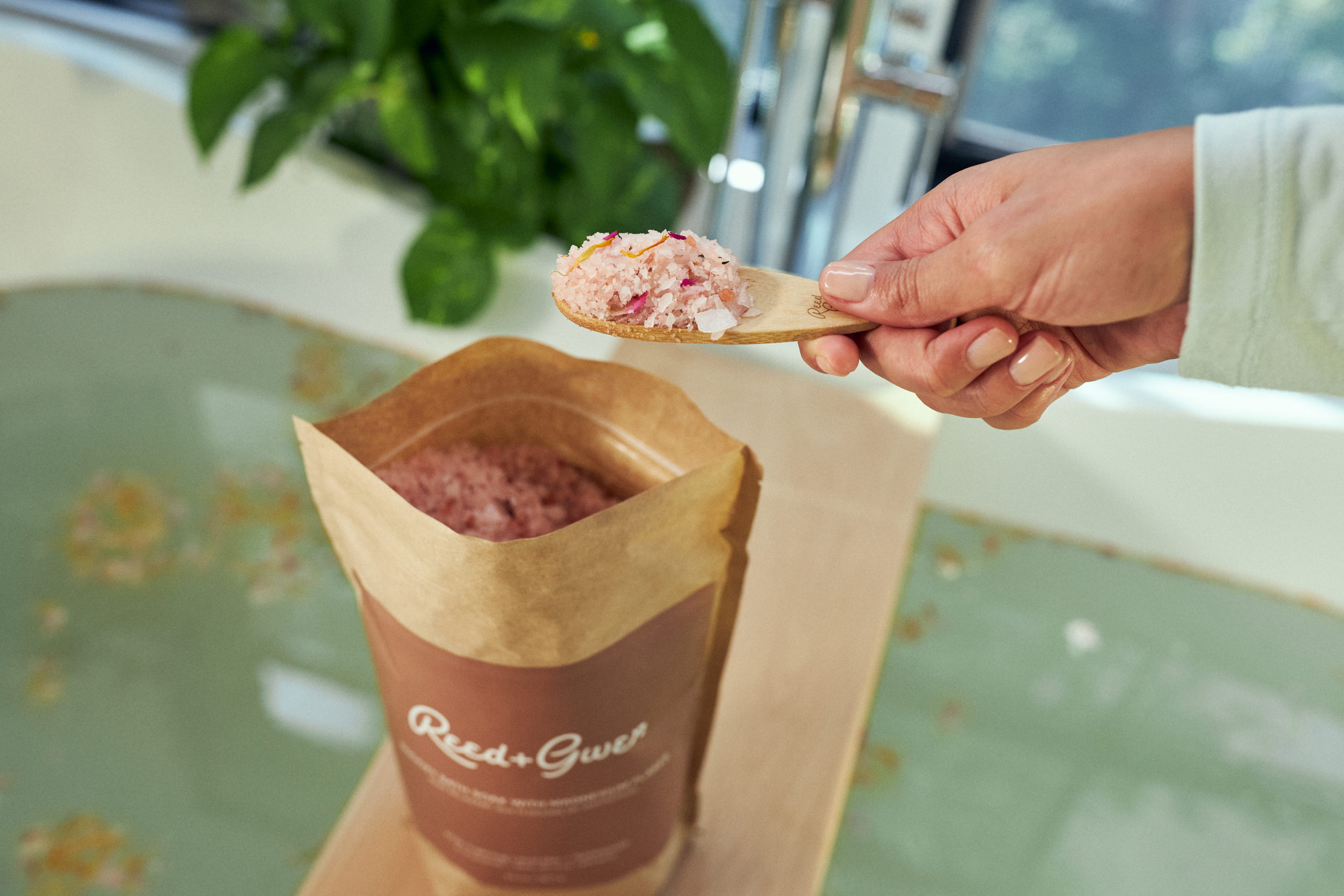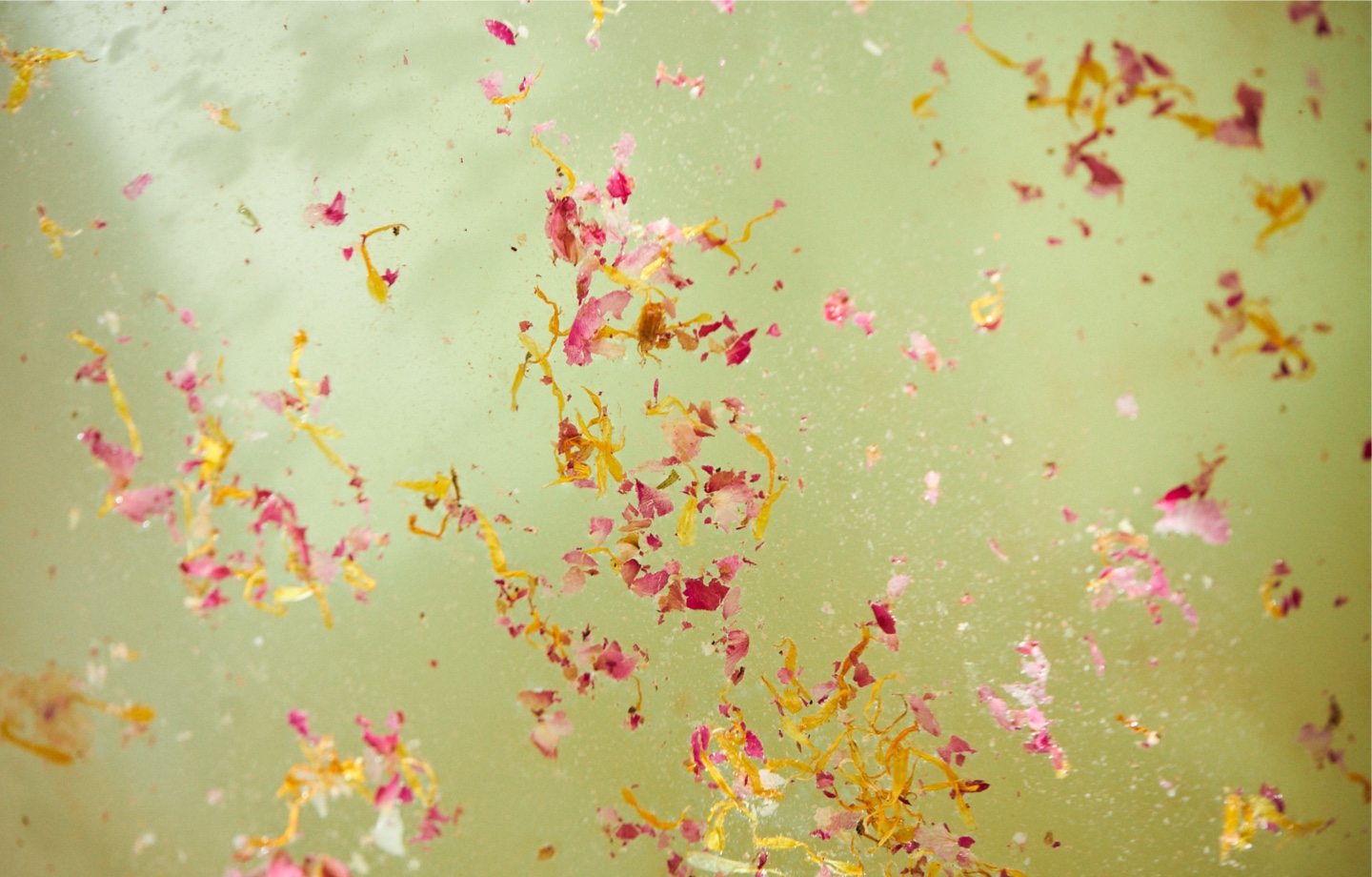Hot baths before bedtime can improve sleep — and they come with a host of other benefits, too.
An evening bath is often touted as a way to mentally unwind after a long day. But a study suggests a soak extends far beyond a self-care regimen — hot baths improve sleep, too.
Taking a pre-bedtime hot bath in water between 104 and 109 degrees Fahrenheit can improve sleep, according to a 2019 study conducted by researchers at the University of Texas in Austin. The research showed that, on average, a hot bath helped people achieve sleep about 10 minutes quicker than those who didn’t take one.
How exactly does this work? Ken Diller, a professor at the University of Texas and one of the study’s researchers, says that soaking in hot water before bed essentially mimics a process your body performs naturally over a 24-hour period. During the day, a person’s core temperature fluctuates, eventually cooling as the day winds down and they near bedtime. This change in temperature is optimal for falling asleep. By soaking in hot water before bed, a person is essentially inducing this process.
Applying heat to a sensitive area of the body, Diller explains, produces a response in the body’s thermoregulatory system — a function that runs on a circadian rhythm and helps regulate sleep. When someone soaks in a hot bath, this system is activated and causes the person’s core temperature to rise before eventually dropping again.

Read more: Why Listening to Your Circadian Rhythm is Essential to Good Health
Diller compared this final effect to how an air conditioner operates — when a home reaches a certain degree of warmth, an air conditioner turns on to cool it. People can also replicate this process by placing a heating pad on their back — in particular, on their spine — or by taking a hot shower with the water focused on their vertebrae.
“This routine is typically effective for most people, even those who struggle with sleep,” says Diller. But, “it’s not a cure all.” His one caveat: Make sure to take a hot bath at least one to two hours before bed. Otherwise, you run the risk of inducing the opposite effect.
If you’re considering incorporating a hot bath into your nightly routine, improved sleep isn’t the only perk. Here are a few other benefits.
Reduces Stress
A 2018 study shows that bathing can reduce stress levels, promote relaxation, and release tension and anxiety. It also found that the mental and physical benefits of routine bathing outweighed those of showering. Feel free to cite this study the next time you need 10 minutes of uninterrupted time to yourself.
Soothes Sore Muscles
Hot water increases blood flow to your muscles, improving circulation and bringing more oxygen to tired areas. The warm water also relaxes the tissue and can improve movement. And adding himalayan salts and magnesium flakes to the bath has also been shown to soothe muscles and release tension.
Improves Your Breathing
A study showed that immersing yourself in hot water can improve your breathing. The reason? Both the temperature of the hot water and the pressure it creates on your chest increases lung capacity and oxygen intake.
Read more: Easy Breathwork Techniques For Better Sleep
Focus on You
This one isn’t scientifically backed, but one could argue that a little solo time in the bath each day is good for your mental well-being. It’s likely you spend a large chunk of your day focusing on other people — whether that involves being a good colleague, partner, parent, or friend. It can be tough to find a moment to focus on just you. Relaxing in a bath each night can serve as that time. Hang a “Do Not Disturb” sign on the bathroom door and allow yourself to soak for 30 minutes or longer. Read a book. Listen to music. Or just shut your eyes and relish the quiet time.
Encourages a Digital Detox
Ok, so maybe this benefit has less to do with the actual bath itself, but we love any habit that demands a break from technology. It’s never a bad idea to pause the social media scrolling and email checking. Social media use has been linked to eating disorders, depression, and anxiety. And all that blue light is bad for your sleep because it suppresses the release of melatonin. Sure, a 30-minute detox might not seem significant, but perhaps it’ll inspire you to take these tech breaks more frequently.

Read more: 5 Easy Ways to Develop Healthier Online Habits
Have feedback on our story? Email [email protected] to let us know what you think!

Shop Pillows
The Essential Organic Pillow Collection
Gentle, breathable, non-toxic support.






